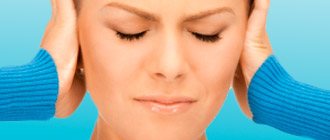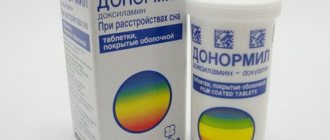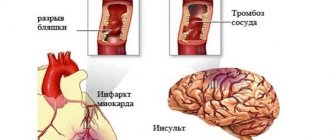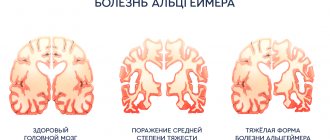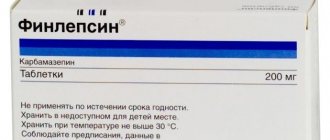Headache, surges in blood pressure, pain and tingling in the heart area, general weakness, increased irritability, problems sleeping... These symptoms, familiar to many modern people, indicate the presence of vegetative-vascular dystonia (VSD) - a disease whose causes lie in disruption of the cardiovascular and autonomic nervous systems.
Often, an exacerbation of this disease occurs after the holidays, when a person allows himself to drink too much. Why is this happening? Are VSD and alcohol compatible? Or maybe it is best for people suffering from this disease to refrain from drinking alcoholic beverages?
Characteristic
The symptoms of dystonia are varied. They number about 150 different manifestations. Most complaints are associated with disruption of the cardiovascular and autonomic nervous systems. The most common ones include the following:
- headache;
- dizziness;
- numbness or chilliness of the limbs;
- discomfort and pain in various organs;
- nausea, vomiting;
- rise/fall in blood pressure;
- emotional instability;
- feeling of anxiety, fear;
- panic attacks;
- sweating;
- increased salivation;
- temperature rise to 37°C;
- fatigue, general weakness;
- loss of appetite.
VSD is paroxysmal or permanent. It can occur in hypotonic and hypertonic types. More often, this pathology occurs in people with endocrine changes in the body - pregnancy, growing up, aging. And also for those who are subject to constant overwork or stress.
Disease development and alcohol effects on the body
Darkness in the eyes, dizziness, a feeling of lack of air - many have experienced this at least once in their lives. Few people know that these are signs of a disease such as vegetative-vascular dystonia. Similar symptoms are observed when exposed to alcohol. Is there a connection to this?
Nature of VSD
In this disease, the autonomic nervous system is activated at the slightest stress and produces rather unpleasant symptoms. What specific manifestations does this disease have? This:
headaches, dizziness;
- heartache;
- lack of air;
- interruptions in heart function;
- hand tremors;
- fear, panic attack, anxiety;
- uncertainty in gait;
- darkening in the eyes, spots before the eyes;
- derealization;
- low-grade fever;
- nausea, diarrhea;
- frequent urination;
- cardiopalmus;
- pre-fainting state.
But, despite the rather serious symptoms, vegetative-vascular dystonia is not a disease. If a person undergoes a full medical examination, he is informed that he is practically healthy. How so? After all, it seems to him that he is about to die!
The fact is that after serious stress (or a series of stresses) the nervous system malfunctions. Vegetative manifestations begin that seem fatal. In fact, as soon as the nervous system returns to normal, they will immediately disappear.
“If you can’t relieve stress, don’t wear it.” This is of course a joke, but there is some truth in it. Modern people are so accustomed to stress that they simply do not notice it or relieve it in extremely undesirable ways: alcohol, cigarettes, drugs. However, instead of relief, they only bring health problems. Meanwhile, the nervous system sends SOS signals. Lack of time and the inability to properly treat nervous disorders leads to such sad consequences as VSD. So the problem comes from:
- frequent stressful situations;
- physical and mental fatigue;
- violations of the daily routine;
- hormonal changes;
- alcohol abuse.
Many people have noticed that after drinking too much, the symptoms described above begin. The same can happen from too much coffee. Anything that overstimulates the nervous system does a disservice to a person. This leads to unpleasant consequences in the form of vegetative disorders.
How is vegetative-vascular dystonia treated? First of all, rest. Then, adjusting the work and rest regime, sports (swimming, running, cycling). Good help: auto-training, acupuncture, cognitive behavioral therapy.
This disease is treated by psychotherapists and psychologists. Medicines must be taken as prescribed by a doctor. Such remedies are aimed at relieving unpleasant symptoms, calming and normalizing the functioning of the nervous system. All of them are incompatible with alcohol.
How does alcohol work?
Everyone has long known about the harmful effects of alcohol on the human body:
Alcohol has a negative effect on the liver. It cannot cope with the increased load and, as a result, toxins enter the blood, which causes poisoning.
- The kidneys also suffer from alcohol. Kidney failure and edema appear. The result is uremia and death.
- The stomach is also damaged after alcohol exposure. Diseases such as stomach ulcers and oncology appear.
- Excessive alcohol consumption causes the entire body to suffer from dehydration. Skin diseases appear: psoriasis, eczema, etc.
- The cardiovascular system suffers from alcohol, because after drinking alcohol, the blood vessels expand sharply and then narrow. This can lead to heart attacks, strokes and sudden death.
But first of all, the nervous system suffers from alcohol.
Under the influence of alcohol intoxication, the blood supply to the brain is impaired.
The functioning of the brain centers in a person deteriorates, and therefore memory. Obsessive desires, actions, and fears appear. There are many known cases where a person committed crimes while intoxicated, and then bitterly regretted it.
Alcohol during mixed crises
Any person suffering from VSD has encountered crises at least once in their life. Drinking alcohol at this moment can lead to unpleasant consequences.
Sympathoadrenal
Sympathoadrenal crises cause the following manifestations:
- excessive production of adrenaline and cortisol;
- a sharp increase in blood pressure;
- tachycardia;
- cold sweat;
- frequent urge to urinate;
- anxiety and panic attacks.
With this syndrome, drinking alcohol in small doses can benefit a person. This is due to the fact that alcoholic drinks dilate the blood vessels in the brain, resulting in relaxation and calm, and the product helps relieve an attack. If a person feels that he cannot resist and drinks a drink in large quantities, it is better to take medicine and give up alcohol.
Negative symptoms can last for many hours.
Vagoinsular
The symptoms of the syndrome are as follows:
- redness of the facial skin;
- sweating and drooling;
- diarrhea;
- low blood pressure and weakness;
- headache;
- tachycardia.
During this type of crisis, alcohol consumption is prohibited. This will further dilate the blood vessels, lower blood pressure and lead to worsening symptoms.
Mixed
Sympathoadrenal crises are typical for patients with hypertensive VSD.
Mixed crises with dystonia are characterized by the periodic development of panic attacks of both types of attack. With this course of the disease, vascular tone changes depending on weather conditions:
- humidity,
- temperature,
- magnetic storms.
Alcohol increases changes in tone, which negatively affects a person’s well-being.
Alcoholic drinks taken in small quantities reduce anxiety in sympathoadrenal variants of dystonia. In other forms of the disease, they will aggravate the manifestations of an imbalance between the sympathetic and parasympathetic parts of the autonomic nervous system.
What happens to the body during the development of VSD?
It is assumed that the symptoms of VSD occur in people with low resistance of the heart muscle to stress, pressure changes, other external influences or functional disorders within the body.
In other words, pathology usually develops in people with primary pathologies of the following nature:
psycho-emotional disorders;
- instability of the nervous system;
- after the manifestation of somatoform autonomic dysfunctions;
- in rare cases, damage to brain structures.
What happens to the human body during the development or progression of VSD?
It turns out that under the influence of certain external or internal factors in the human body, disturbances in the neurohumoral or metabolic regulation of the functioning of vascular structures occur.
Such disorders of the body’s functioning lead to completely understandable vegetative symptoms of the disease, to the occurrence of the following manifestations:
- patients with VSD usually present with many diverse complaints of moderate intensity;
development of cardialgia;
- sudden attacks of rapid heartbeat and panic attacks may be recorded;
- sometimes, after nervous stress or overexertion, moderate respiratory disorders can be observed - shortness of breath, lack of air;
- Such patients often talk about dizziness, hand tremors, midges flying in front of their eyes, and fainting states.
In some cases, after the influence of a factor provoking an attack, it is possible to observe dysuretic disorders in the patient, which, in turn, can provoke the development of urolithiasis.
Consequences of drinking alcohol during VSD
Many people ask the question whether it is possible to drink alcohol with VSD. It is impossible to answer it unequivocally.
It is not alcohol itself that has a direct effect on the body, but its metabolite, acetaldehyde. It is classified as an interstitial poison.
Accumulating in the body, it causes pathological reactions, which result in the release of large quantities of free radicals, which disrupts metabolic processes. In the central nervous system, inhibition processes are inhibited, which is accompanied by an inadequate assessment of what is happening around the person.
The changes also affect other organs and systems, so the synthesis of necessary substances is disrupted in the liver, water-electrolyte balance and the cardiovascular system suffer (high blood pressure, tachycardia, arrhythmic disorders). Excessive urination leads to rapid dehydration of the body.
It is safe to say that drinking during VSD means causing great harm to the body. Therefore, it is worth thinking about what to take and in what quantities. Even a low-alcohol drink can, with vegetative-vascular dystonia, cause a terrible hangover with all the consequences: sweating, rapid pulse, pain in the heart and head, shortness of breath, etc.
Vegetative-vascular dystonia and alcohol
Many doctors consider alcoholic drinks to be the main enemy of people who suffer from VSD. Both strong and low-alcohol drinks equally have a negative impact on the functionality of the nervous system. Drinking alcohol is a huge stimulus for the development of VSD. According to statistics, the majority of people who abuse alcohol are diagnosed with this disease.
Typically, such people, even after drinking a small amount of alcohol, develop a hangover, which is manifested by the following symptoms:
- Increased blood pressure, shortness of breath;
- Tachycardia, redness of the skin;
- Increased excitability, anxiety.
Studying the question of what effects VSD and alcohol have, scientists conducted an experiment. The gist of it was that a group of people who suffer from dystonia had their blood pressure and pulse measured before drinking alcohol, and then seven hours later, when the hangover began. According to the results of the experiment, it was found that in such people, after taking fifty grams of vodka, blood pressure and pulse levels increased by 120%. This phenomenon is compared to the effect on the body of an attack of severe tachycardia or a hypertensive crisis.
Alcohol during VSD puts a strong strain on the walls of blood vessels and the heart, so there is a risk of developing a stroke or heart attack, especially when performing heavy physical activity. People who suffer from hypotonic VSD should not drink alcohol, since all signs of the disease begin to appear after taking one glass of vodka.
What drinks are allowed
With VSD, you can drink alcohol only in small doses. Preference should be given only to high-quality alcoholic products.
Those who experience sympathoadrenal crises sometimes take a little cognac, whiskey, vodka or red wine. Non-alcoholic beer is also allowed, but you should not drink it in large quantities, as it has a negative effect on the heart.
You can only buy alcohol in trusted stores. You should beware of products made using artisanal methods.
Alcohol and vegetative-vascular dystonia, according to most experts, are incompatible things. But the Internet is full of headlines about the absence of harm from drinking alcoholic beverages in the presence of the presented disease. Who to believe? First of all, we should talk about the effects of alcohol.
Consequences of drinking alcohol during VSD
The negative consequences of drinking alcohol can be avoided by not drinking it at all. But there are situations when you can’t do without alcohol. You can minimize the negative impact by using the following methods:
- always monitor the amount of alcohol you drink;
- eat right the night before the feast;
- eat a lot of foods high in amino acids;
- before drinking an alcoholic drink, eat something high-calorie or fatty;
- After the feast, take a sedative.
With these simple tips you can protect yourself from a hangover after drinking an alcoholic drink.
Elimination of unpleasant consequences
Traditional methods are powerless in the case of the influence of ethanol on the human body. There is a chance to only slightly reduce its impact, severity and number of crises if you adhere to several rules:
- select food products that contain glycerin. It is prescribed to patients with VSD to improve blood circulation;
- use of sedative tinctures. A small proportion of alcohol in those medicines cannot affect a person. However, after drinking alcohol, they should not be taken;
- taking herbal teas such as St. John's wort and hawthorn. The first plant has a stimulating effect, but the second helps fight high blood pressure;
- healthy way of life. A remarkable fact is that after abstaining from ethyl-containing drinks for at least a month, it helps to completely cleanse and restore the normal functioning of an important internal organ (liver).
Tea with St. John's wort
Do not forget that prescribing treatment for yourself is dangerous. This should only be done by a qualified medical professional who considers each individual case. Based on their conclusions, doctors provide effective care.
When to sound the alarm
The danger of alcohol lies in its positive effects in the initial stages, which can lead to the formation of addiction. A hangover with VSD is more severe, which affects the patient’s poor health.
There is a certain risk of developing serious pathology from all body systems. With elevated blood pressure, a hypertensive crisis may develop, the consequences of which are:
- myocardial infarction;
- hemorrhages in the brain;
- acute heart failure;
- aortic dissection;
- ischemic stroke;
- encephalopathy;
- cardiac arrhythmias.
Let's first look at what VSD is and what symptoms does this disease cause? Vegetovascular dystonia (VSD) is a widespread disease of the nervous system associated with disturbances in autonomic functions.
There are several types of the disease: hypotonic, hypertensive and mixed, which includes, to one degree or another, the features of the two previous types.
Does smoking affect a person with dystonia?
The situation is somewhat different in the case of nicotine addiction in a person and the development of VSD symptoms in him. If regarding alcohol, doctors constantly argue about whether or not to drink alcoholic beverages in moderation in case of vegetative-vascular disorders, then doctors categorically prohibit smoking with VSD!
In other words, in matters of compatibility of concepts, VSD and smoking, medical practitioners are unanimous - smoking has the most negative effect on the vascular system of the body and always only provokes the progress of vegetative-vascular disease.
And all because literally immediately after smoking one cigarette, the patient may experience:
spasms of the vascular bed;
- increased heart rate;
- jump in blood pressure;
- deterioration in the functioning of brain structures.
As a result, doctors insist that smoking is strictly prohibited when a diagnosis of VSD is made, even if at first it seems to the patient that a cigarette may somewhat alleviate the symptoms of the disease.
Hangover against the background of VSD
Drinking alcoholic beverages for vegetative-vascular dystonia in small doses improves well-being, but abuse causes dysfunction of many systems. Drinking alcohol in large quantities leads to the following hangover symptoms:
- feeling of heat in the body;
- hypertensive manifestations;
- dysfunction of cerebral vessels;
- headache;
- anxiety;
- increased fatigue;
- rapid breathing.
If when taking small doses of alcohol you feel relaxation and an improvement in overall tone, then after a few hours the situation is no longer so rosy. A couple of hours after drinking several glasses of strong alcohol, people with vegetative-vascular dystonia usually experience the following symptoms:
- increased blood pressure;
- feeling of heat in the body;
- the appearance of anxiety;
- headache;
- increased breathing and heart rate.
Types of VSD
A disease of the nervous system, which is characterized by dysfunction of the autonomic system, is called vegetative-vascular dystonia. Experts distinguish three types of this disease:
- hypertensive;
- mixed;
- hypotonic.
The third type of VSD is most often found in older people and pregnant women. It is characterized by the fact that the pulse becomes unstable and blood pressure drops.
Symptoms of the disease
The following symptoms of the disorder exist:
- decreased appetite;
- decline in performance;
- pressing type headaches (back of the head and crown of the head);
- dizziness;
- darkening of the eyes;
- fainting.
The first type of VSD, on the contrary, is characterized by an increase in blood pressure. The symptoms are identical, however, there are still a few distinctive ones:
- feeling your own heartbeat;
- noise in ears;
- Dark fragments sometimes appear before your eyes
- trembling of limbs;
- lack of air;
- sweating of feet and hands.
Ear noise
Mixed type often has symptoms from the previous two, therefore it is determined by the treating specialist.
How to avoid negative consequences
You should drink in moderation. If people prefer to cheer up by drinking alcoholic beverages, then in small quantities this will not harm their health, but excessive consumption leads to an increase in the symptoms of vegetative-vascular dystonia.
Surely everyone has noticed that after drinking alcoholic beverages there is often a headache, nausea and other unpleasant symptoms, which are simply called “hangover syndrome,” caused by intoxication of the body.
Experts have come to the conclusion that if the causes of VSD development are identified against the background of emotional shock and stress, its symptoms only intensify after drinking alcohol.
What to do if alcoholic drinks provoke a sharp deterioration in your condition?
Undoubtedly, treatment of VSD should be carried out comprehensively, with the initial conduct of a full examination and determination of the causes of the development of the disease.
However, if drinking alcohol provoked the primary unpleasant symptoms of VSD of moderate intensity, you can try to alleviate your condition even on your own at home.
But even if the initial attack is successfully stopped on its own, then, at a convenient time, such a person should still see a doctor. So, to relieve the moderate unpleasant symptoms of an attack of VSD that occurs while drinking alcohol:
- taking sedatives or sedatives - valerian, motherwort or others;
cool shower;
- basic rest;
- in consultation with your doctor, you can use drugs from the group of tranquilizers (meprobamate, diazepam or phenazepam);
- in some cases, beta-blockers (for example, Propranolol, Biprolol) may be appropriate, the use of which must also be agreed with a doctor.
But to prevent attacks from reoccurring, you should think seriously about treating VSD.
After all, it is the full-fledged comprehensive treatment of autonomic disorders and effective prevention of the problem that make it possible to cope with even the most complex cases of pathology.
Author of the article:
Elena Demidova
about the author
Did you like the article?
Let us know about it -
rate


